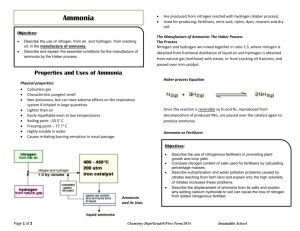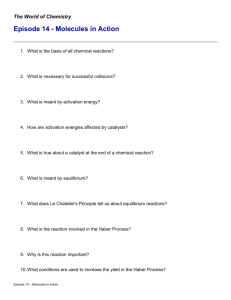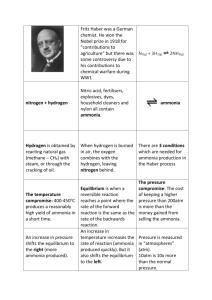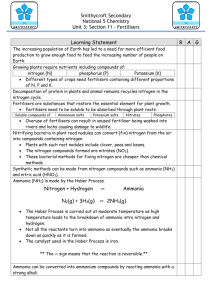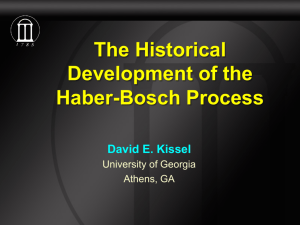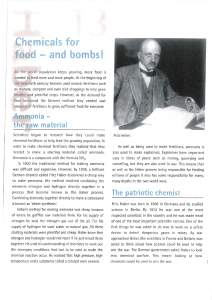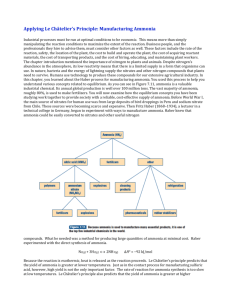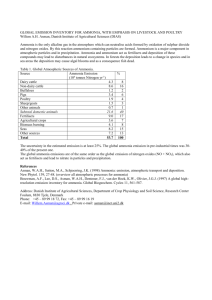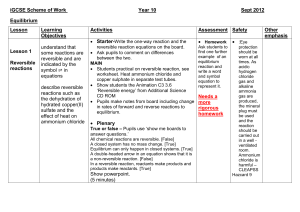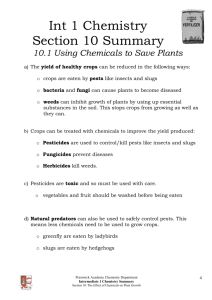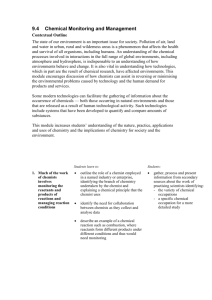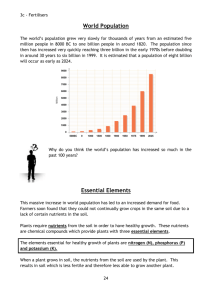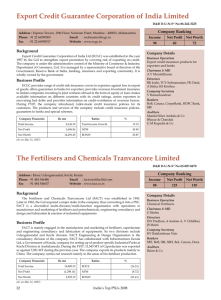KS4_Haber_Problems_Pupil_Sheets
advertisement
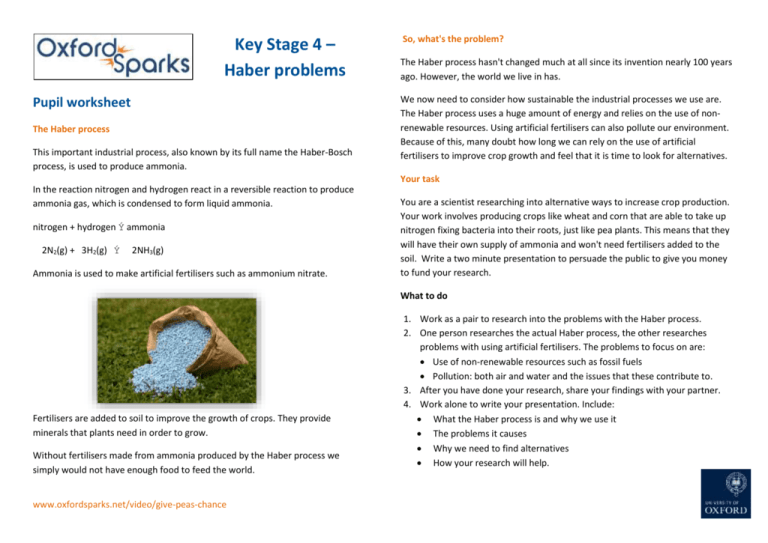
Key Stage 4 – Haber problems Pupil worksheet The Haber process This important industrial process, also known by its full name the Haber-Bosch process, is used to produce ammonia. So, what's the problem? The Haber process hasn't changed much at all since its invention nearly 100 years ago. However, the world we live in has. We now need to consider how sustainable the industrial processes we use are. The Haber process uses a huge amount of energy and relies on the use of nonrenewable resources. Using artificial fertilisers can also pollute our environment. Because of this, many doubt how long we can rely on the use of artificial fertilisers to improve crop growth and feel that it is time to look for alternatives. Your task In the reaction nitrogen and hydrogen react in a reversible reaction to produce ammonia gas, which is condensed to form liquid ammonia. nitrogen + hydrogen Ý ammonia 2N2(g) + 3H2(g) Ý 2NH3(g) Ammonia is used to make artificial fertilisers such as ammonium nitrate. You are a scientist researching into alternative ways to increase crop production. Your work involves producing crops like wheat and corn that are able to take up nitrogen fixing bacteria into their roots, just like pea plants. This means that they will have their own supply of ammonia and won't need fertilisers added to the soil. Write a two minute presentation to persuade the public to give you money to fund your research. What to do Fertilisers are added to soil to improve the growth of crops. They provide minerals that plants need in order to grow. Without fertilisers made from ammonia produced by the Haber process we simply would not have enough food to feed the world. www.oxfordsparks.net/video/give-peas-chance 1. Work as a pair to research into the problems with the Haber process. 2. One person researches the actual Haber process, the other researches problems with using artificial fertilisers. The problems to focus on are: Use of non-renewable resources such as fossil fuels Pollution: both air and water and the issues that these contribute to. 3. After you have done your research, share your findings with your partner. 4. Work alone to write your presentation. Include: What the Haber process is and why we use it The problems it causes Why we need to find alternatives How your research will help.
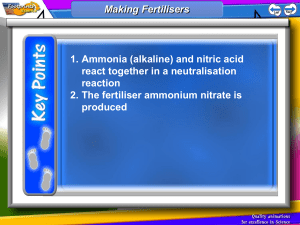
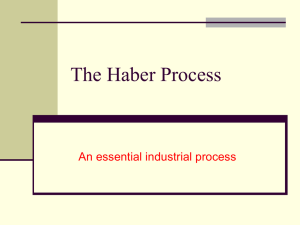
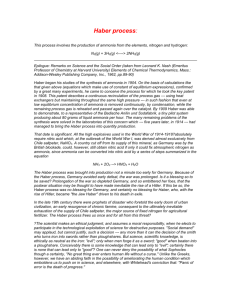
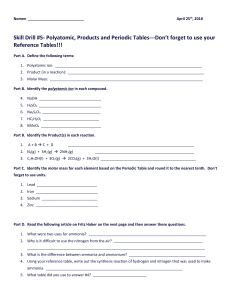
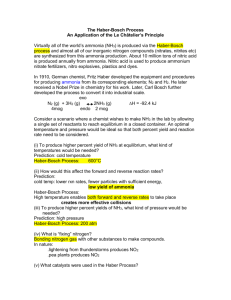
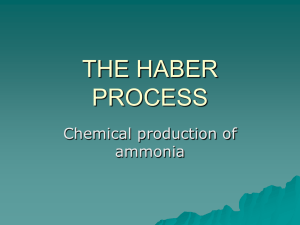
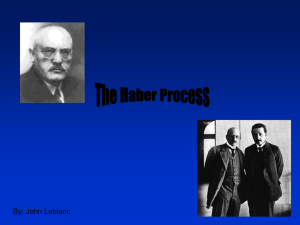
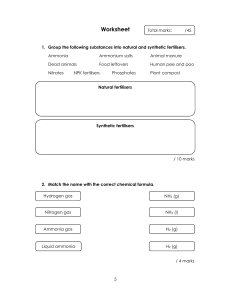
![mic_class10_10.ppt [Compatibility Mode]](http://s3.studylib.net/store/data/008220705_1-eb9498ce6cd0ab3209762ef99981a3a3-300x300.png)
